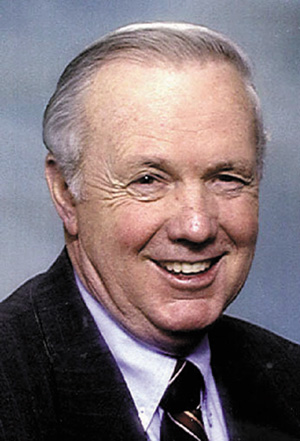No. 22 - HOW TO ACHIEVE FINANCIAL SECURITY
No. 22
Jim Davidson...NEWSPAPER COLUMN
HOW TO ACHIEVE FINANCIAL SECURITY
Former President James A. Garfield once said: "Poverty is uncomfortable, as I can testify; but nine times out of ten, the best thing that can happen to a young man is to be tossed overboard and compelled to sink or swim for himself." The American free enterprise system offers tremendous opportunity for the individual who is always worth more than he or she is being paid. If you don't already know this, you will soon discover that it's the easiest and best way to have real financial security.
Several years ago, before moving here to Conway, my wife and I built a beautiful home and we installed a wood burning Franklin stove. Back then, the term "energy crisis" had become a reality in American society and it caused many of us to change our habits. While I've used the example of a wood burning stove before, I'd like to broaden it considerably and share something here that will definately help you in the area of your personal finances.
Have you ever heard of someone going up to a cold wood burning stove and saying, "give me some heat and then I'll put in the wood?" Well just for the fun of it, one day I tried it and I can tell you truthfully, it doesn't work! That stove just sat there and didn't do a thing! Finally, I gave up and put in some wood, stuffed some newspapers under the wood and lit the paper with a match. It wasn't long before it got so hot I had to move my chair back.
My point is simple. I could have sat or stood there and shivered for days and that stove would never have put out any heat. That is, not until I finally put in some wood and started it burning. Now, believe it or not, I have just described a principle that is holding many people back on their jobs and keeping them from earning the amount of money they need and would like to have. While it's a little more complicated than this, it stems from the attitude many people hold that they would like to have the benefits before they produce or prove themselves worthy of the salary they started with in the beginning. In other words, they're saying, "let me start out with a high salary, then I'll prove I'm worth that salary."
Unless you are self-employed, too young or retired, please consider this: when a person is looking for a job and someone agrees to hire them, regardless of the starting salary, the employer is taking a chance the person is going to be worth at least what he is paid. If the employer is in the private sector where a profit must be earned to stay in business, this means just breaking even. On the other hand, if the employee is worth more than he is paid, the difference is profit, and this is where future raises and fringe benefits come from.
If you are being paid eight dollars per hour, your value to your employer should be worth at least ten dollars per hour, because that's the only way you can have a financial future with the company. Take my word for it, if your employer is not earning a profit, there is no way he can pay you more money. Now he may pay you for a while, based on the value of other employees who are worth more, but it cannot and will not continue for long.
The next time you want to see this principle clearly, visualize that cold Franklin stove sitting there and me begging it for heat. If you really want to move up in your company and earn a lot more money in the process, the surest and most dependable way to do it is to always be worth more than you are paid. To hold this attitude, and then follow through with effective and effecient work, is the best financial security on earth. -- (EDITOR'S NOTE: Jim Davidson is a motivational speaker and columnist. You may contact him at 2 Bentley Drive, Conway, AR 72034.)
